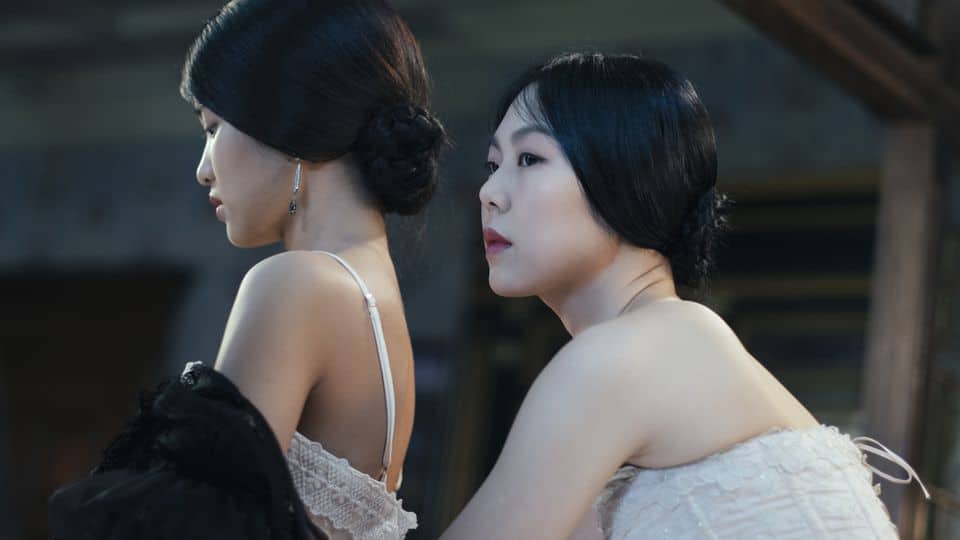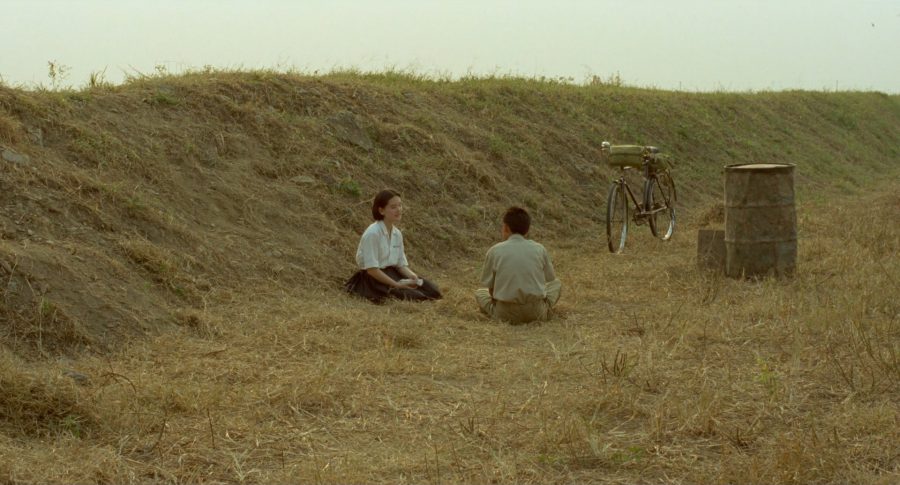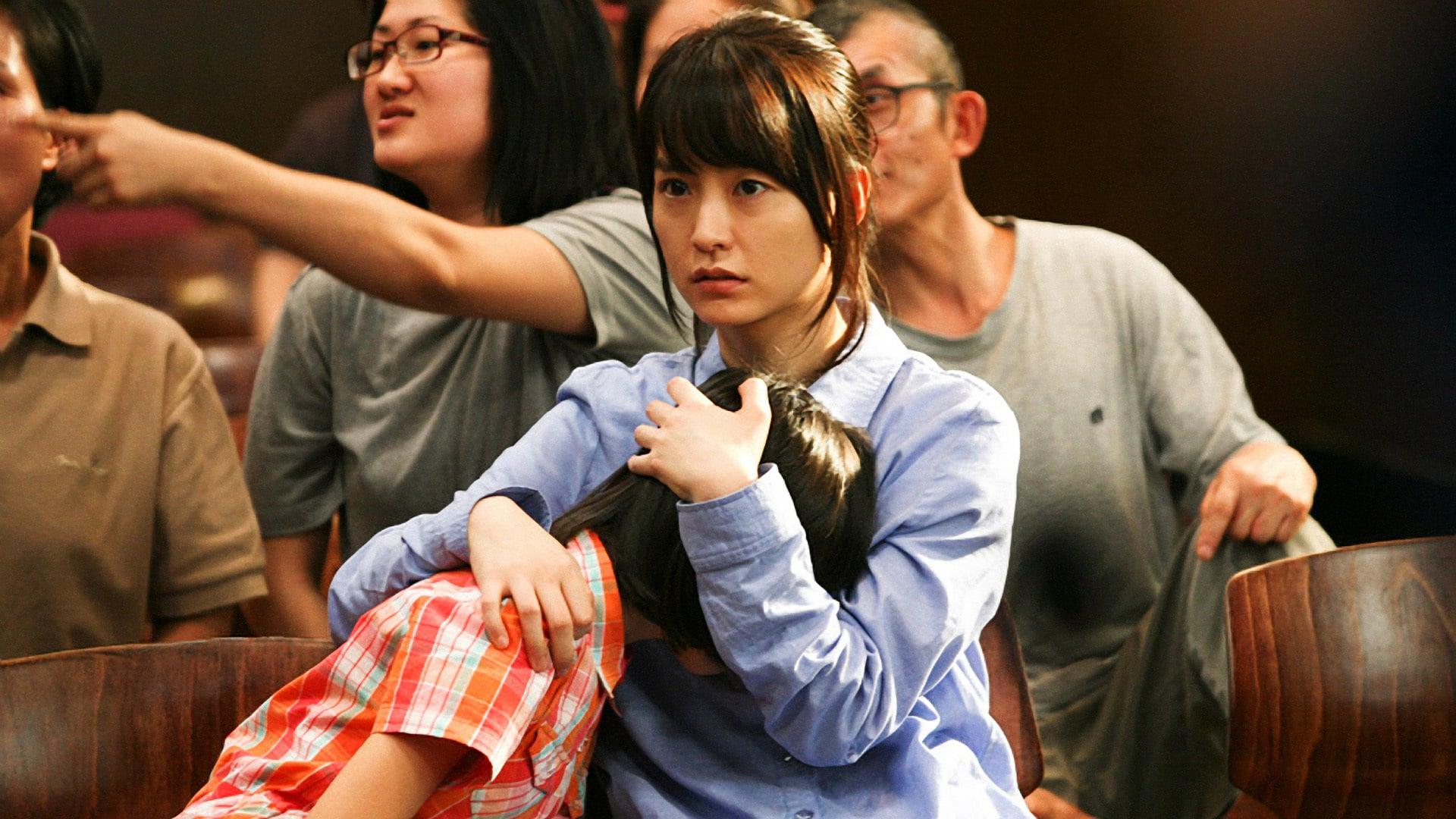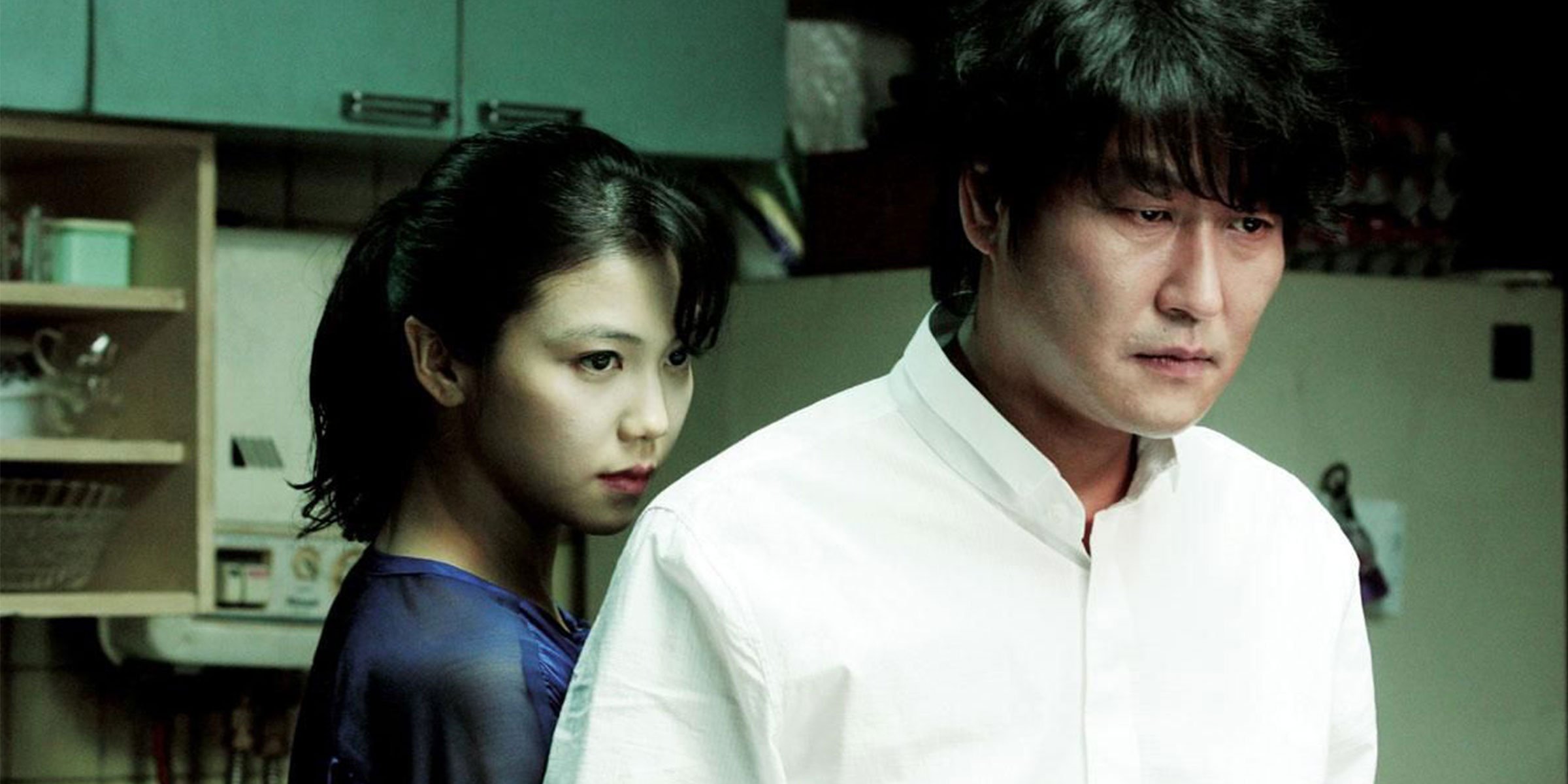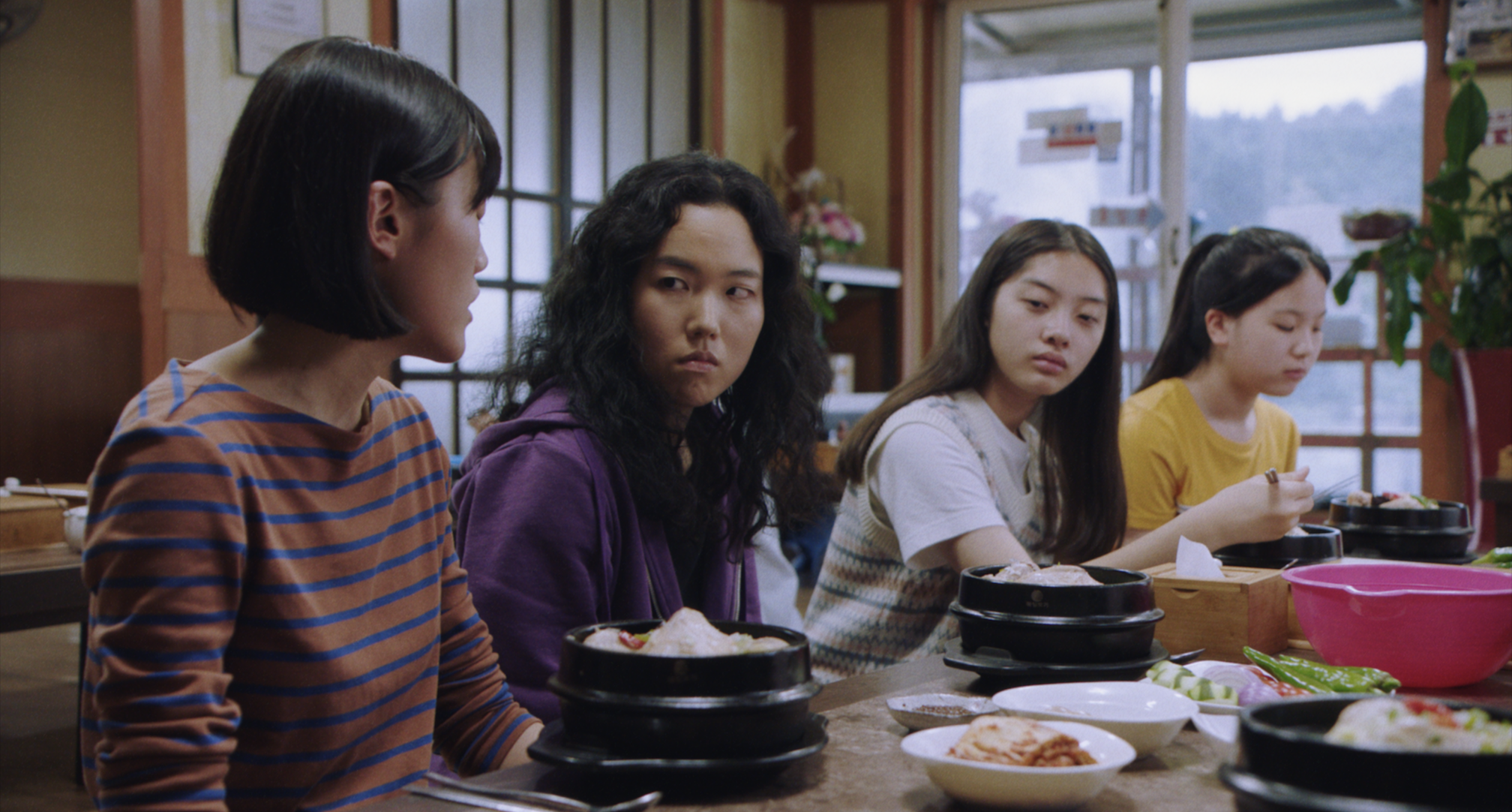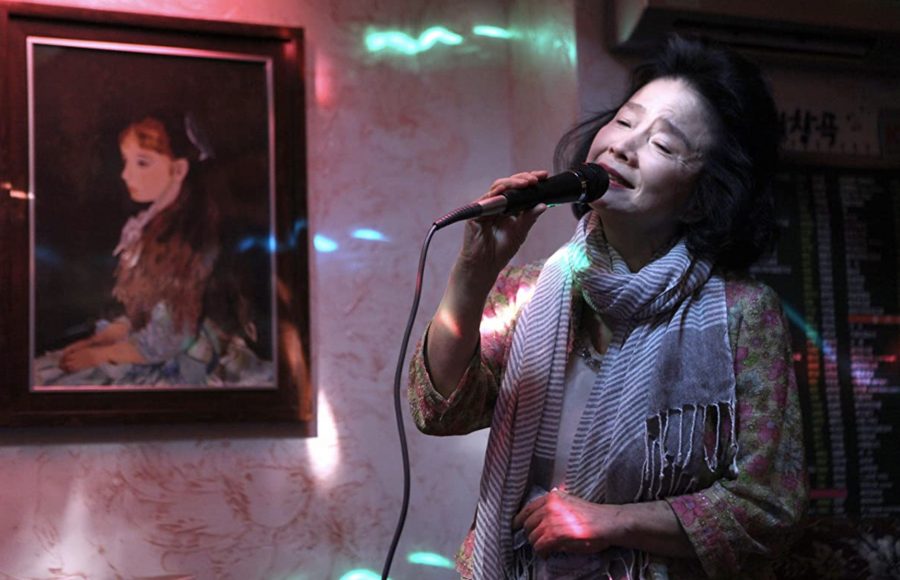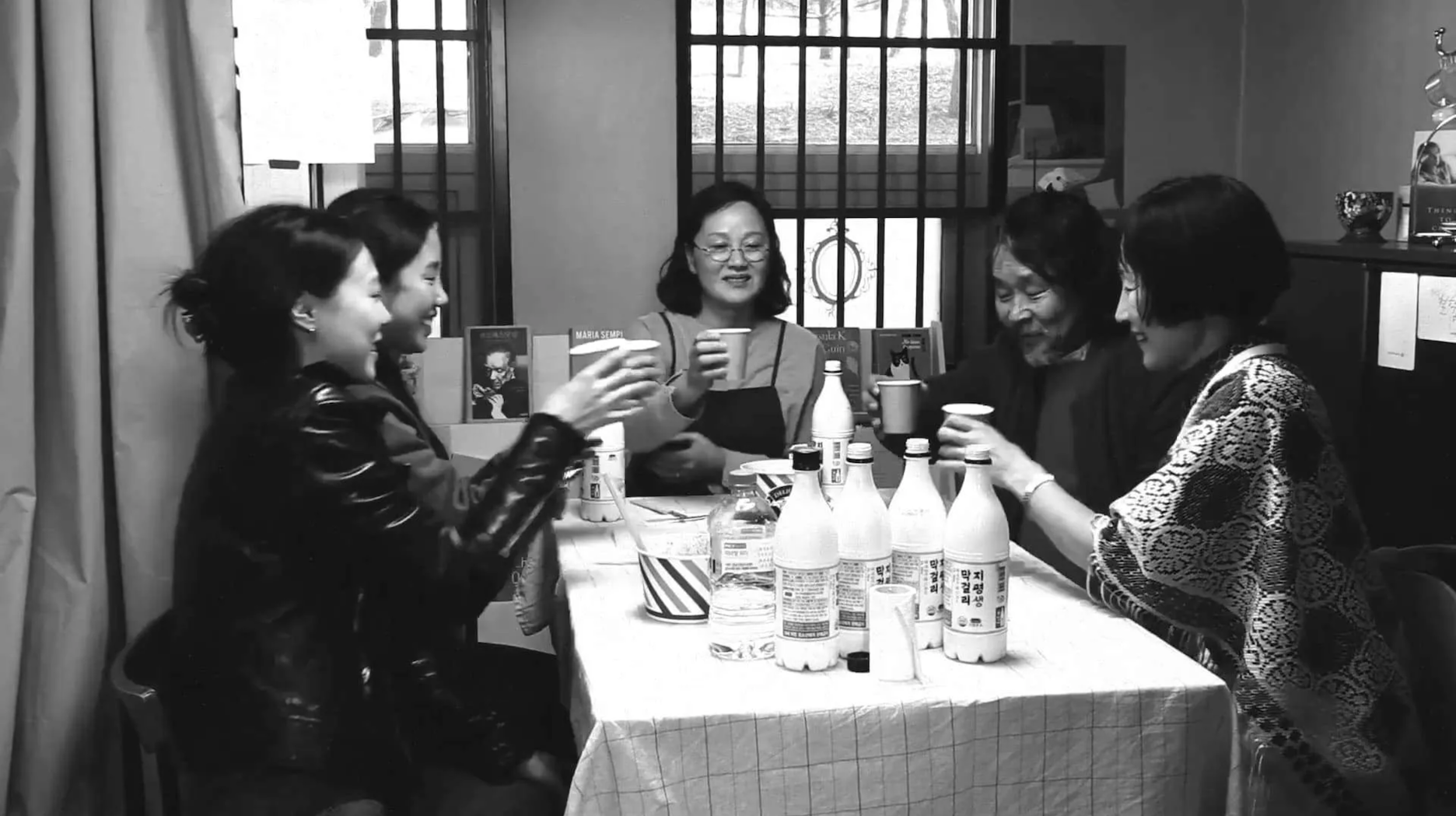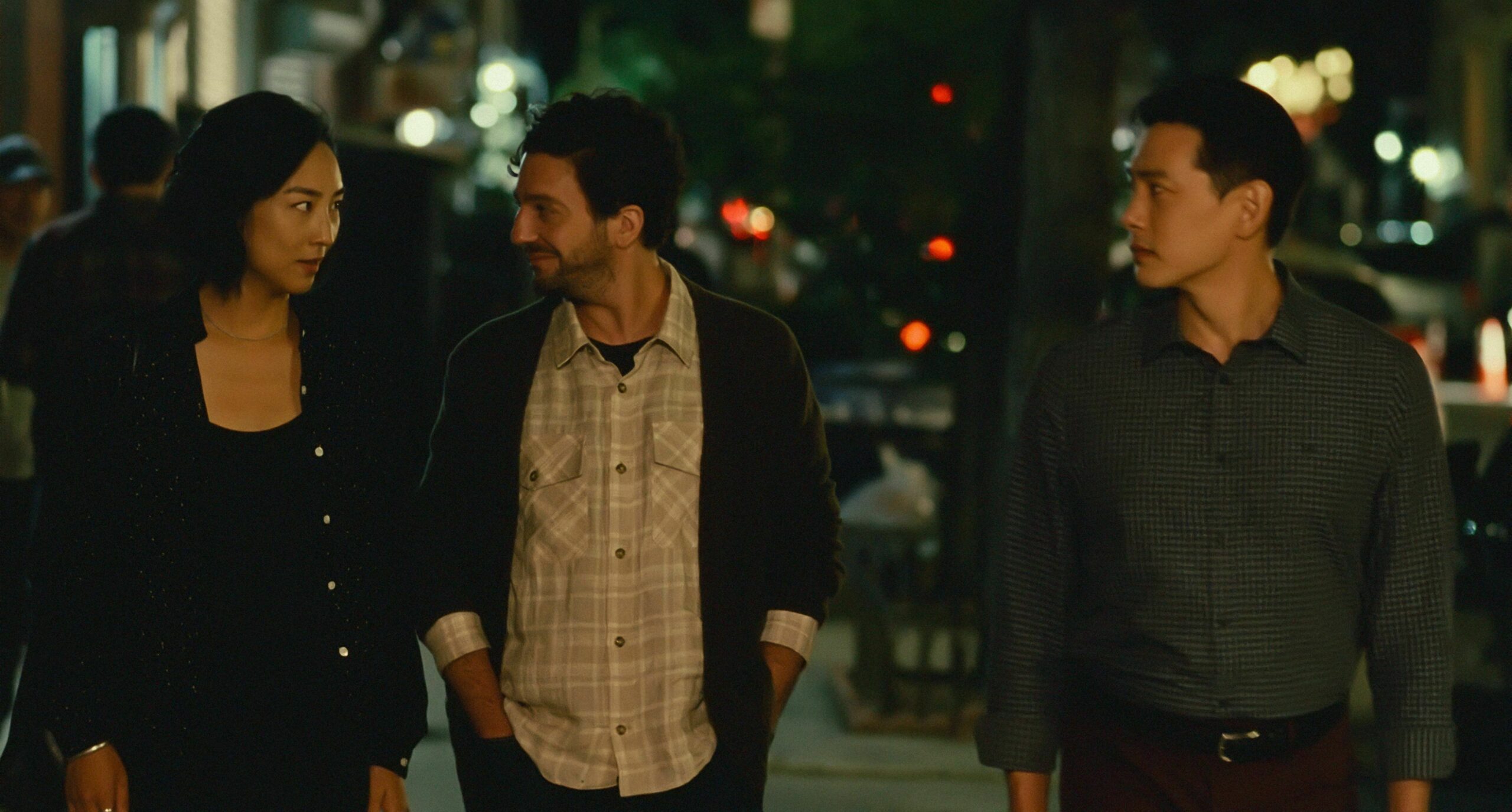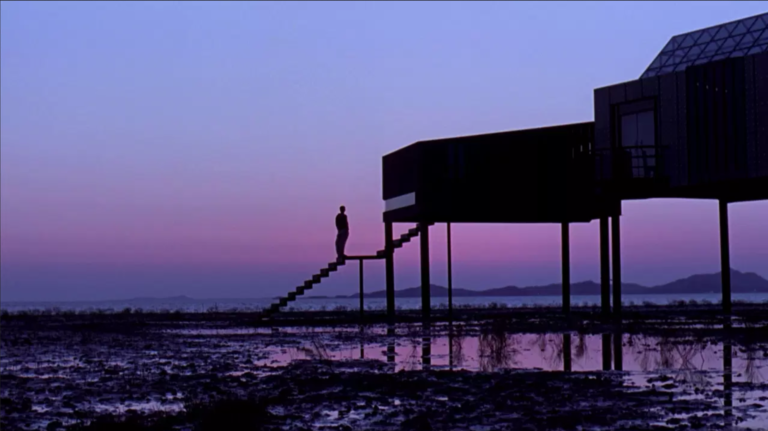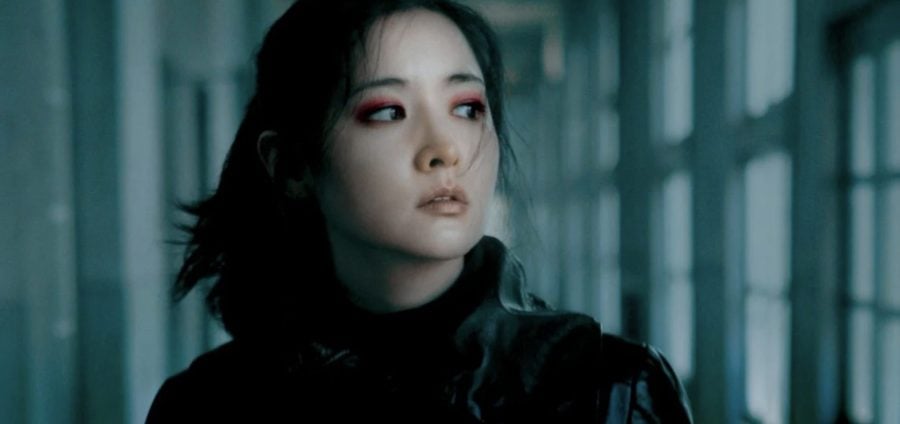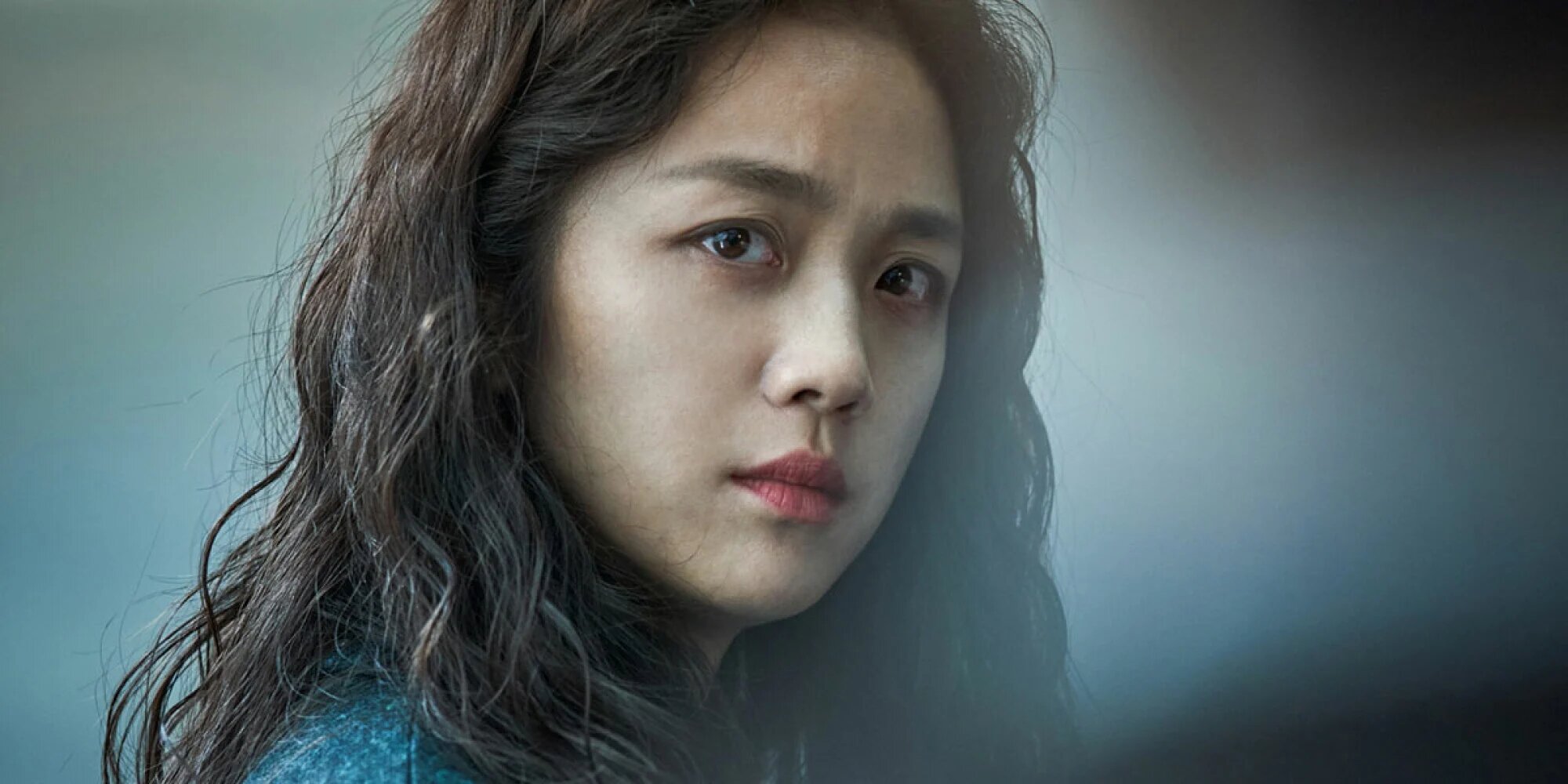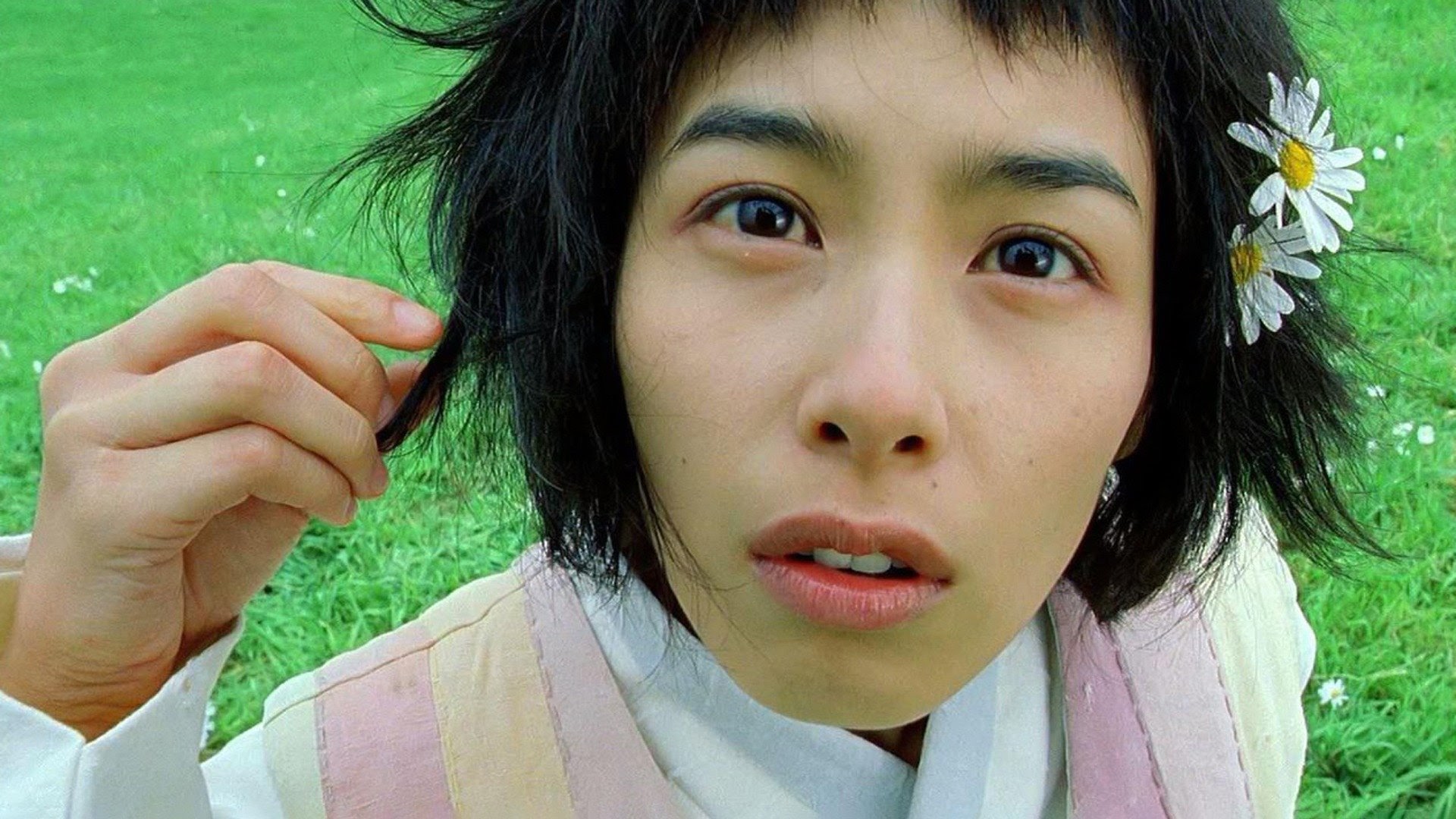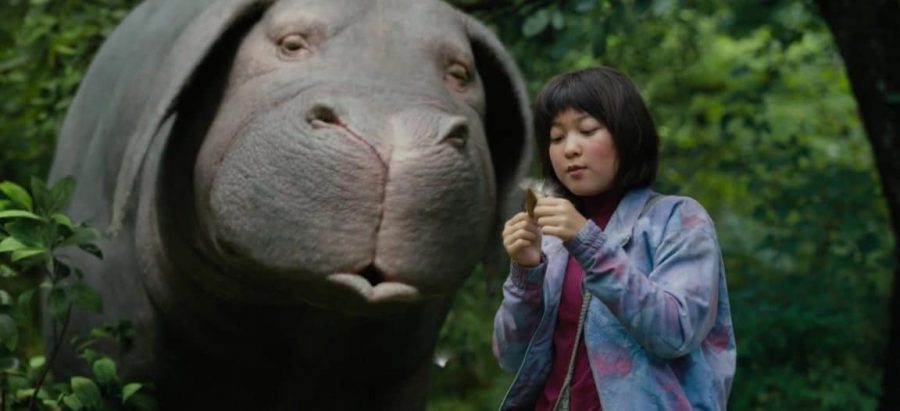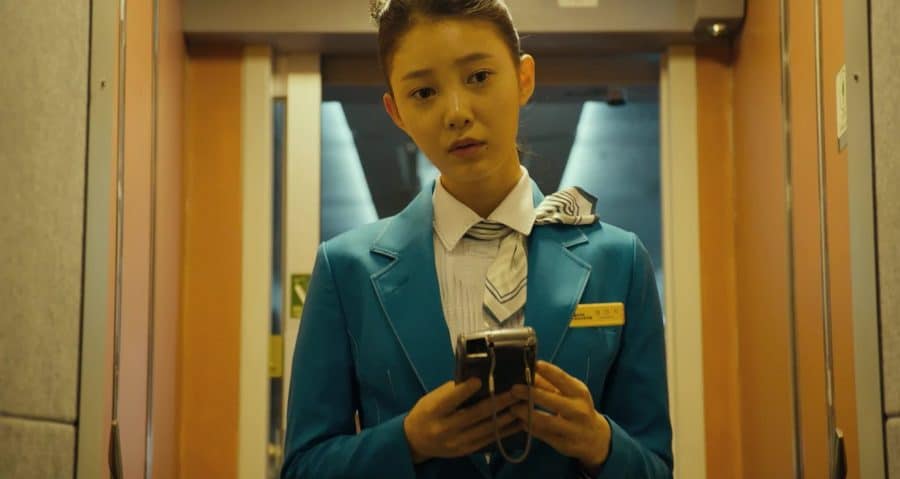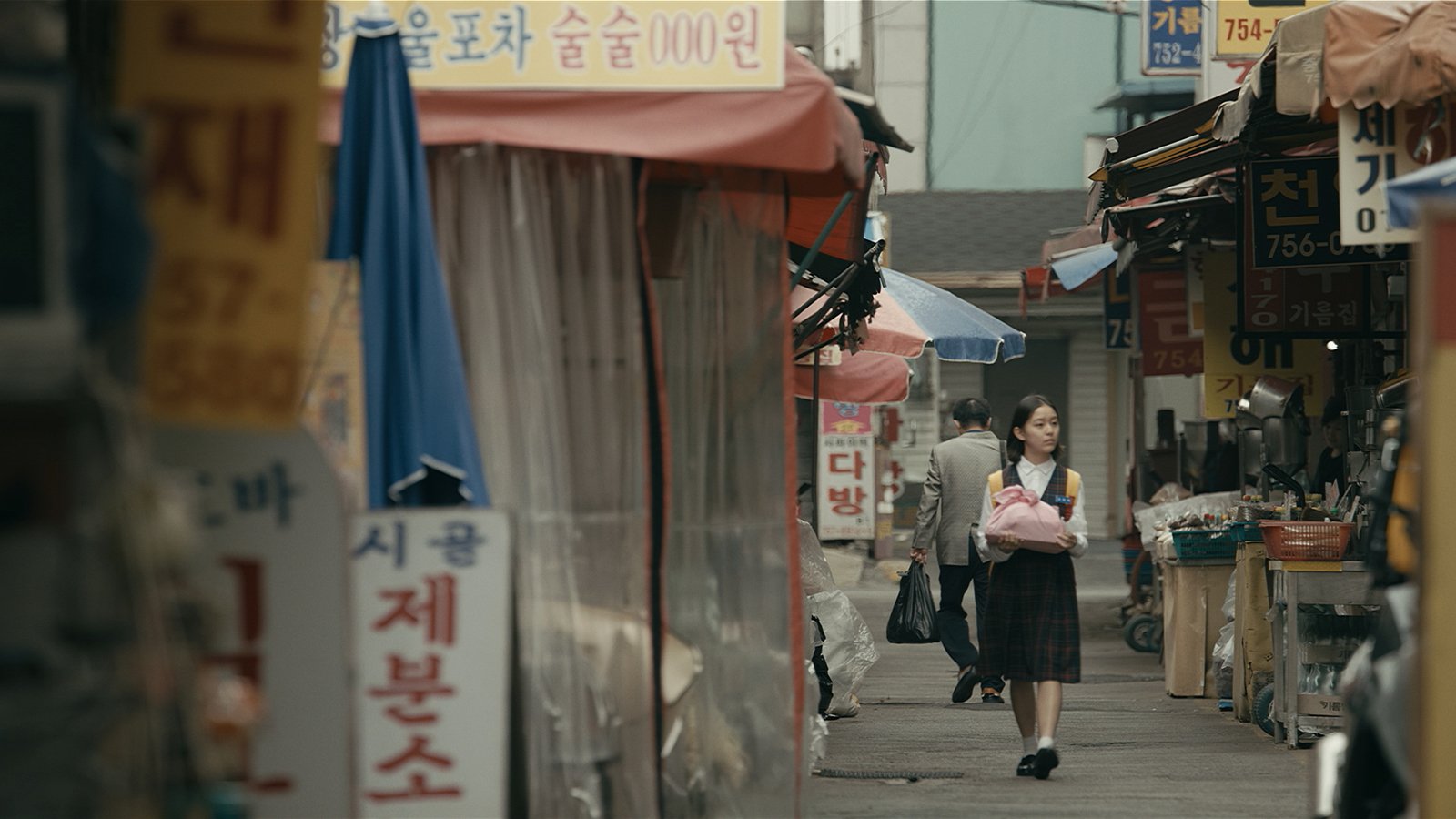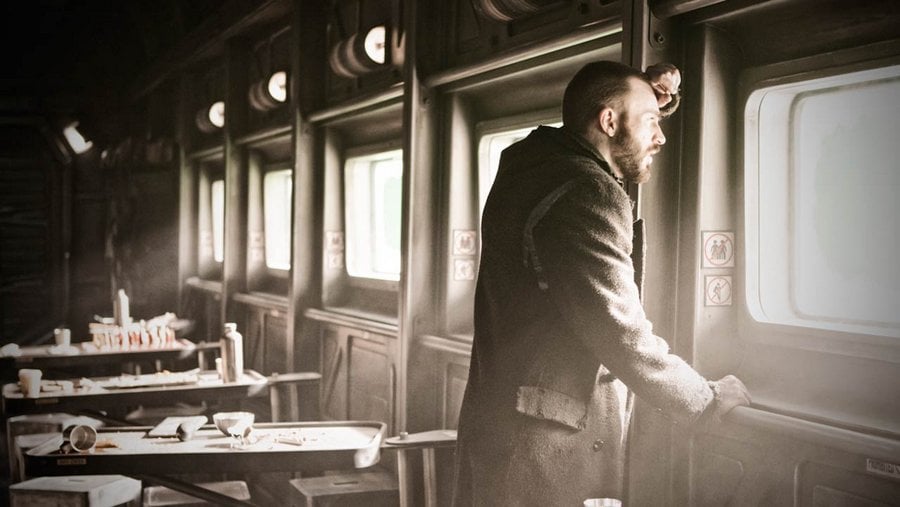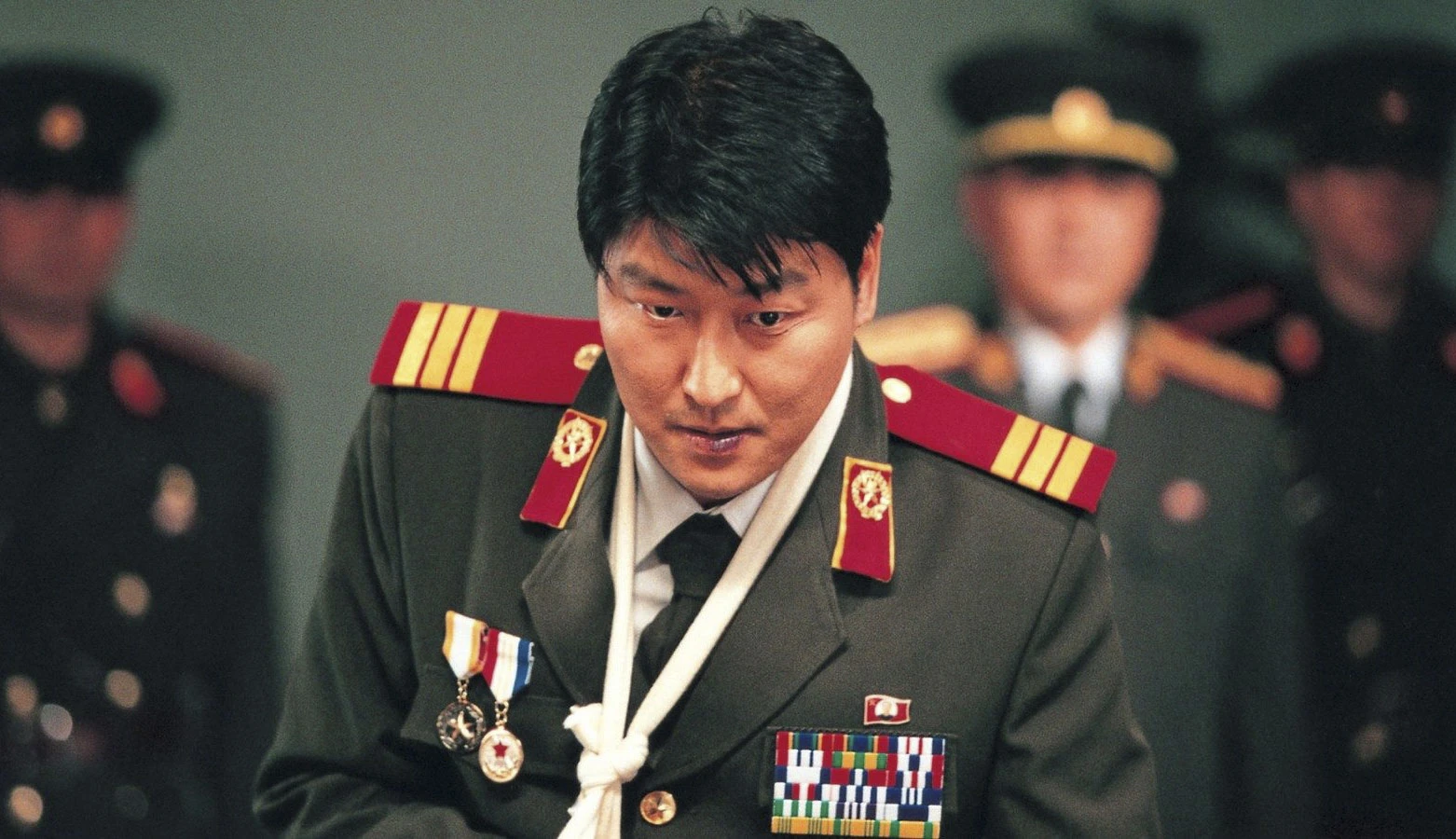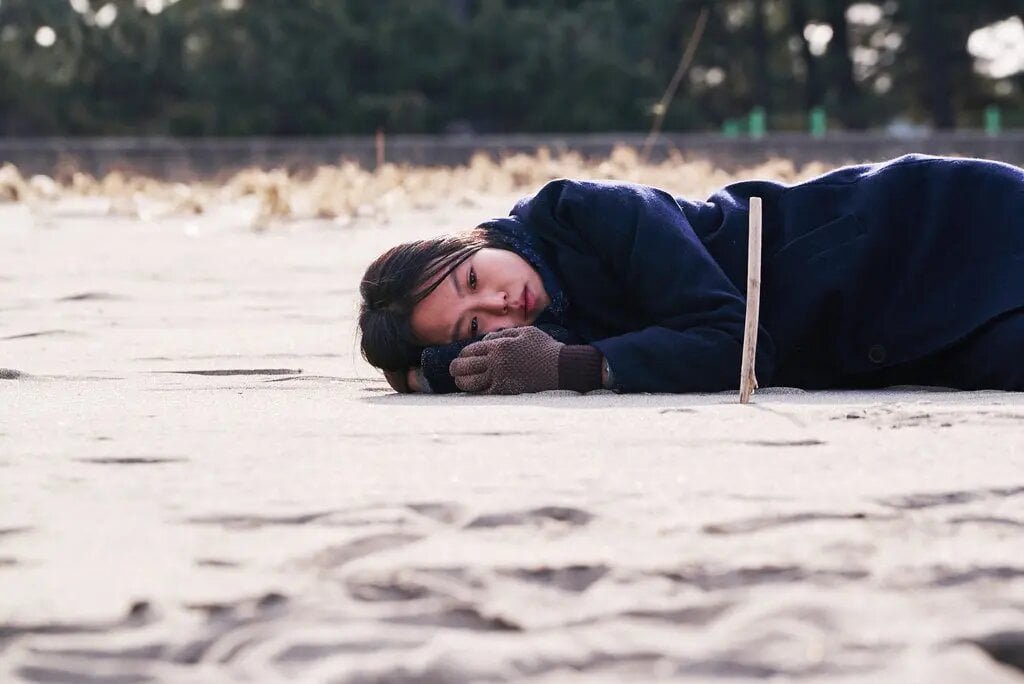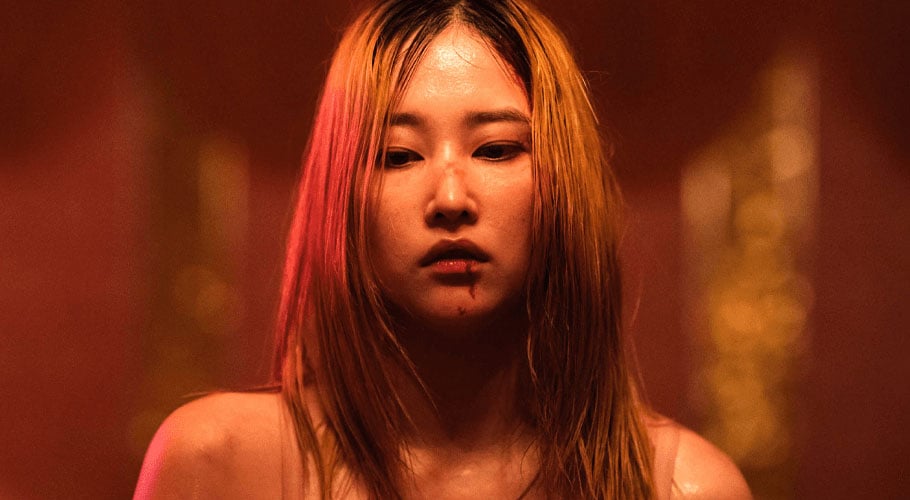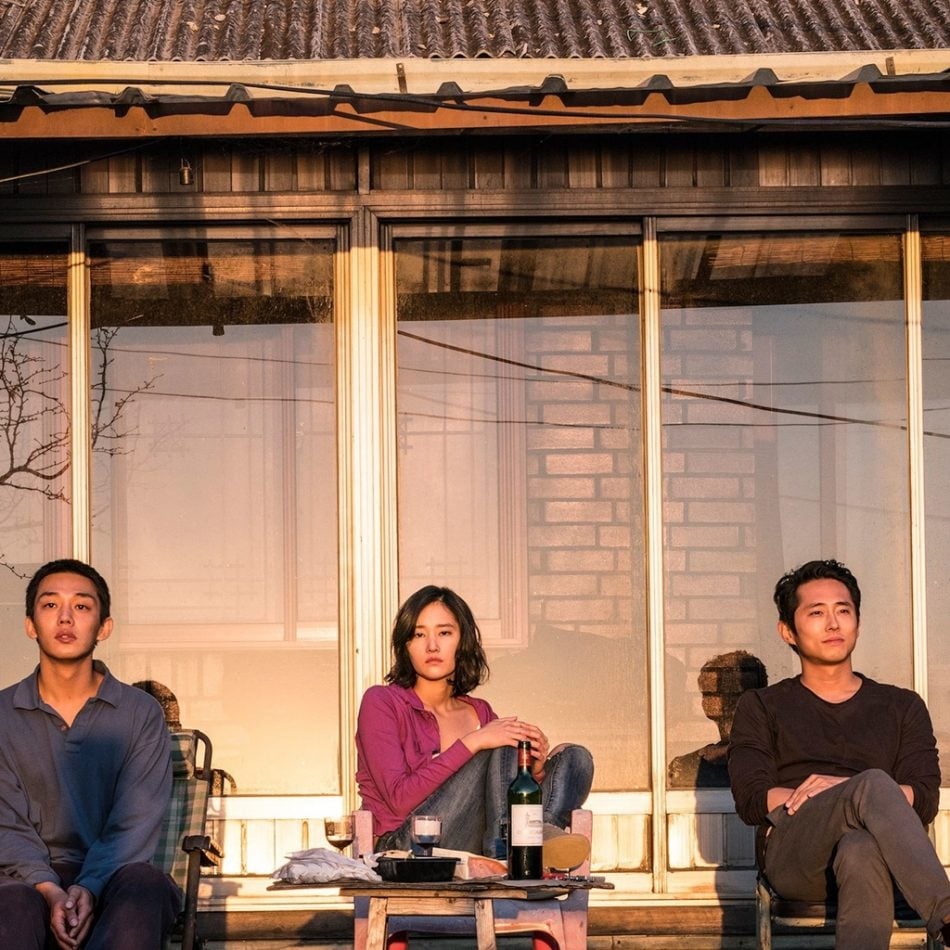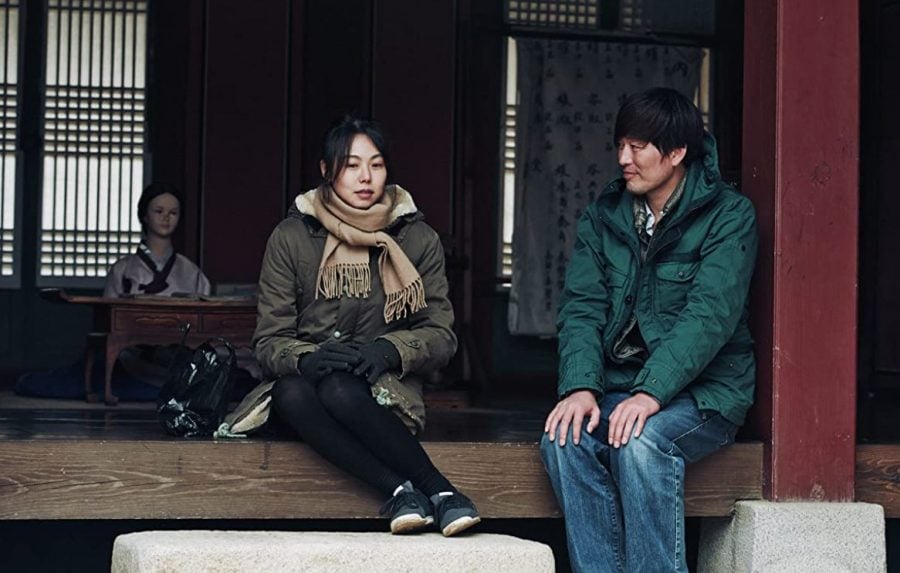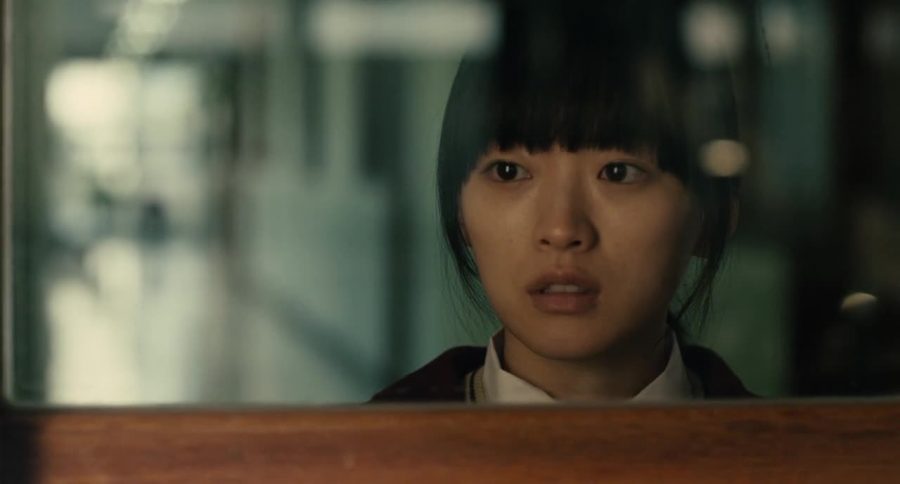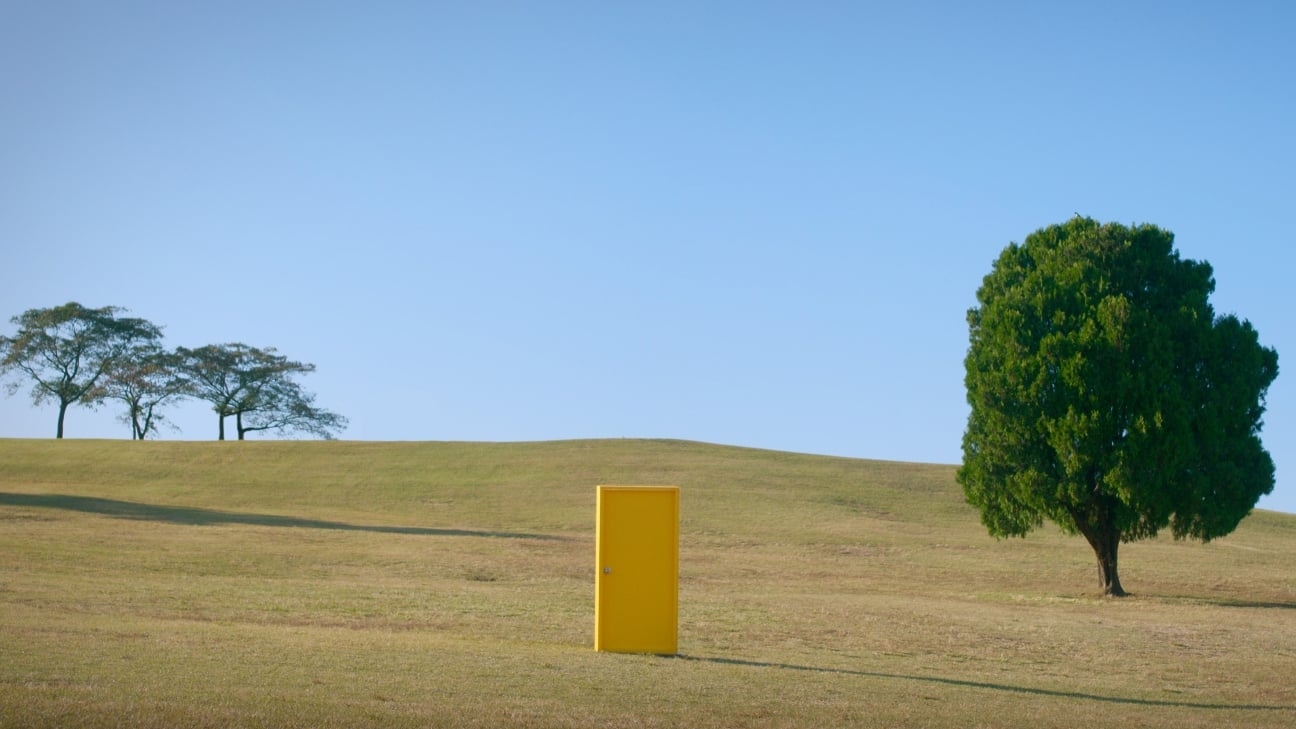The 25 Best South Korean Movies to Watch Online
With hallyu, or the Korean pop culture wave, taking the world by storm thanks to global media phenomena like Parasite and Squid Game, South Korea has become an even greater premier destination for art and entertainment. Korean cinema and television has always been a popular export from the country, but now the trademarks of its movies and shows have become eminently recognizable. Be it their emotionally powerful romances and melodramas, their oddball comedies, or their vicious and violent thrillers, Korean filmmakers have found their own expressive language that resonates across all demographics.
And with the sea of Korean content available to us today, some of their great films might be buried under the algorithms. So here we’ve selected 10 movies to help keep your hallyu fixation fresh.
The 2016 outing of South-Korean auteur director Park Chan-wook (maker of Oldboy and Stoker) once again shifts attention to the dark side of what makes us human: betrayal, violence, and transgression. Based on the 2002 novel Fingersmith by British author Sarah Waters, The Handmaiden revolves around the love of two women and the greedy men around them. Park shifts the novel’s plot from Victorian London to 1930s Korea, where an orphaned pickpocket is used by a con man to defraud an old Japanese woman. Routinely called a masterpiece with comparisons made to the likes of Alfred Hitchcock, this is a stylish and meticulous psychological thriller that packs enough erotic tension to put a crack in your screen. If you love cinema, you can’t miss this movie. You might even have to watch it twice.
Genre
Drama, Mystery, Romance, Thriller
Director
Chan-wook Park, Park Chan-wook
Language
Japanese, Korean
Mood
Dramatic, Thrilling, Weird, Well-acted
From Korean director Park Chan-wook, who also brought you the far quieter The Handmaiden, comes a movie that is positively terrifying. Its premise alone is enough for any sentient human being to shudder. On his daughter’s birthday, the good-for-nothing Oh Dae-su (played by Choic Min-sik) gets drunk and is arrested by the police. A friend eventually bails him out and, while he is making a phone call, Oh Dae-su disappears. Not knowing why, he is held in the same room for 15 years for no apparent reason. Until, one day, he is released. That’s all that can be revealed about this winner of the Grand Jury Prize at Cannes in 2004 without giving away too much. All we can add here is the way we recommend Oldboy to people admitting to not having seen it yet: “Watch Oldboy. You’re welcome. We’re sorry.” A crazy, twisted film that goes to extremes. A cult classic and a statement.
Genre
Action, Drama, Mystery, Thriller
Director
Chan-wook Park, Park Chan-wook
Language
Korean
The Sanskrit word Samsara refers to the wheel of life and roughly translates to “continuous flow”. And, indeed, Samsara takes us on an entrancing journey, chronicling the never-ending cycle of birth, life, death, and re-birth that life, big and small, goes through—at least according to the religions that were born on the Indian continent. Shot on 70mm film and utilizing computerized camera movements as well as time-lapse photography, this film by American director Ron Fricke delivers absolutely breath-taking visuals. Whether it’s awe-inspiring vastness or the close-up of a human face, its narration-less narrative integrates every aspect of human and natural life regardless of scale or location. The scope of this effort is truly awe-inspiring and the clarity of it has to be seen to be believed. An unusual and magical film!
Genre
Documentary
Director
Ron Fricke
Language
English, No language
Mood
Challenging, Mind-blowing, Original, Suspenseful, Thrilling, Weird, Without plot
At nearly four hours long, A Brighter Summer Day is a sprawling, beautifully composed film that follows young Xiao Si’r and his eventual entanglements in nearly everything, from love to youth gangs to politics. While parts of the story, particularly its bone-chilling climax, are based on true events, the film is largely reconstructed from Edward Yang’s memories of the era he grew up in. As a result, the visuals feel crisp and true, tinged with just the right amount of nostalgia to balance the grittiness of its realism.
As coming-of-age films go, A Brighter Summer Day is certainly more on the tragic side. It’s also seminal in its specificity and depth—an absolute must-watch for any and all filmgoers.
Genre
Crime, Drama, Romance
Director
Edward Yang
Language
English, Mandarin
Mood
Character-driven, Slice-of-Life, Sunday, True-story-based
Abuse is bad and should be reported, full stop. But it’s not so easy to do so, when abusers stay in positions of power, and the people who are assigned to keep them in check are cowardly against them. Silenced depicts true crime novel The Crucible, which in turn, is based on a real life case of the Gwangju Inhwa School. Through the perspective of a new art teacher, Silenced systematically outlines how difficult it is to deliver justice, from the way the school administration bribed police and the education department, to the way the court didn’t even think to hire a deaf interpreter. It’s a horrific watch, but the intensity of the depiction was needed, given that this film’s release pushed South Korea’s government to change their laws and the actual school shut down within the same year.
Genre
Drama
Director
Dong-hyuk Hwang, Hwang Dong-hyuk
Language
Korean
Mood
Challenging, Depressing, Discussion-sparking, Intense, Raw, Thought-provoking, True-story-based, Well-acted
A thirst for love, a thirst for recognition, a thirst for sympathy, a thirst for meaning, a thirst for life, and a thirst for blood. Director Park Chan-wook and actor Song Kang-ho, two of the biggest names in South Korean cinema, join forces for the first time in a modern take on the supernatural. In present day South Korea, Catholic priest Sang-hyun (Song) volunteers himself as a human experiment during the formulation of a vaccine against a deadly virus. When the experiment fails and he is thought to be dead, he resurrects as a conflicted vampire, one whose moral code continually goes against his intrinsic desires. Along with Song and long-time collaborator cinematographer Chung Chung-hoon, Park creates a riveting atmosphere that is both very scary and sad. By blending elements of horror and drama, he also achieves putting a fresh and unique spin on the time-honored vampire film.
Genre
Drama, Horror, Thriller
Director
Chan-wook Park, Park Chan-wook
Language
English, French, Korean
Mood
Character-driven, Dark, Gripping, Intense, Well-acted
In both documentaries and films, adoptees meeting their biological parents for the first time is an event often painted in a sweet light. Never mind the child’s mixed feelings about it or the tragic reality that caused the split in the first place—it’s a reunion between family members, so it must be unequivocally special. In Return to Seoul, director Davy Chou doesn’t just debunk that myth, he subverts it by making the adoptee, Freddie, as unapologetically complex and emotionally enigmatic as possible. She resists affection but wallows in loneliness. She craves reinvention but stays in the same place for years. She’s in constant motion while being absolutely stuck in life. In other words, she’s a realistic embodiment of a person struggling to find some semblance of home. Chou displays an intimate understanding of the foreign experience, and he couples it with captivating cinematography, a rousing soundtrack, and fantastic performances across the board to make a daring, inventive, and thoroughly exciting film.
Genre
Drama
Director
Davy Chou
Language
English, French, Korean, Portuguese, Spanish
Mood
Character-driven, Emotional, Lovely, Mind-blowing, Touching, True-story-based, Well-acted
Poetry is a masterpiece from one of South Korea’s most cherished movie directors, Lee Chang-dong. The simple story follows the everyday life of a grandmother, Mija, who works as a caretaker for a living. To fill her inner emptiness, she decides to join a poetry club with other grandmothers in her neighborhood. Meanwhile, as Mija deals with her own financial and health problems, she struggles to connect with her teenage grandson — only to find out that he is keeping a dark secret. If you are familiar with Lee Chang-dong works, then you know that the movie will tug at your heartstrings. But if you aren’t, prepare to be moved.
Genre
Drama
Director
Chang-dong Lee, Lee Chang-dong
Language
Korean
Mood
Challenging, Dramatic, Long, Slice-of-Life
After you’ve watched a few films by Hong Sang-soo, you should know the general outline of what to expect: long, unbroken shots of long, unbroken conversations between characters (who are probably drinking alcohol), with very minimal movement on screen, a few recurring character types, and probably actress Kim Min-hee. But where a number of Hong’s films tend to make excuses for its burdened, self-righteous artist characters, The Novelist’s Film expresses not just a self-awareness of Hong’s usual perspective but a sincere willingness to imagine something beyond himself.
With one of the strongest screenplays he’s had in a long time, unexpected new touches to his usual style, and a powerful lead performance by Lee Hye-young, the film manages to infuse a newfound sense of vitality and vulnerable emotion into tis familiar beats. There’s plenty of humor and light tension to be found in the film’s many conversations about the purpose of art—boiling things down to the most foundational reasons for why we make and respond to creative works in the first place. Whether you’re a longterm fan or longterm skeptic of Hong’s work, The Novelist’s Film adds something undeniably new to his oeuvre.
Genre
Drama
Director
Hong Sang-soo
Language
English, Korean
Mood
Character-driven, Lovely, Slow, Thought-provoking, Well-acted
The concepts of roads not taken and domino effects have received plenty of cinematic attention in their showier forms by way of multiverse comic book movies and dimension-hopping films like Everything Everywhere All At Once. But, though there’s no hint of sci-fi in Past Lives, Celine Song’s gentle film can count itself as one of the best treatments of that universe-spawning question: “what if?”
When her family moves from Seoul to Canada, teenage Na Young bids a loaded farewell to classmate Hae Sung and changes her name to Nora. Years later, they reconnect online and discover the spark still burns between them. This is no idealistic romance, though: Past Lives is told with sober candor. Song acknowledges real obstacles standing in the way of a relationship between the two — those pragmatic (distance) and, more painfully, personal (evolving personalities, American husbands).
Those two threads — unrealized romance and the transmutation of identity that so often takes place after migrating — are expertly entwined in Past Lives to produce a sublime, aching meditation on memory and time, practical love and idealistic romance, and all the complex contradictions that exist in between. That Song communicates so much and so delicately in only her first film makes Past Lives all the more stunning.
Genre
Drama, Romance
Director
Celine Song, Female director
Language
English, Korean
Mood
Character-driven, Discussion-sparking, Emotional, Raw, Romantic, Thought-provoking, Touching, Well-acted
While more people are familiar with its US adaptation, Il Mare is far more striking and emotionally resonant. The Korean romance, separated by timelines, depicts two lonely people who lived in the same seaside residence. They form a bond through the titular house’s mailbox, by sharing letters, voice recorders, and suggestions to deal with loneliness. As they receive each other’s messages, the film slowly reveals the reason for their loneliness– that they’ve been left behind. Matched with shots of creeping urbanization, migration, and the Y2K scare, Il Mare understands modern isolation, but it also underscores how solitude helps us connect with other people.
Genre
Drama, Fantasy, Romance
Director
Hyun-seung Lee, Lee Hyeon-seung, Lee Hyun-seung
Language
Korean
Mood
Emotional, Original, Romantic, Slice-of-Life
This Park Chan-Wook classic is the third part of a trilogy of films around the theme of revenge, following Sympathy for Mr. Vengeance and Oldboy. While ultimately unique, Lady Vengeance is a thriller set in a prison, in the vein of films such as the Japanese action drama Female Prisoner #701: Scorpion. After being framed and wrongly convicted for murder, our protagonist seeks out the true perpetrator of the crime –– but more than anything else, she seeks vengeance.
This film’s run time is 115 minutes and every second is essential. There is often gratuitous violence perpetrated by men against women in film, however Lady Vengeance takes back control and for that reason it remains one of my favorite revenge films.
Genre
Drama, Thriller
Director
Chan-wook Park, Park Chan-wook
Language
English, Japanese, Korean
Mood
Action-packed, Intense, Mind-blowing, Suspenseful
A twitchy, uncomfortable noir film for the digital age, Decision to Leave blends the trappings of a restless police procedural with an obsessive forbidden romance. Here, director Park Chan-wook flips every interrogation and piece of evidence on its head, pulling us away from the whodunit and towards the inherently invasive nature of a criminal investigation. It’s a movie that remains achingly romantic even if everything about the central relationship is wrong. For detective Hae-jun and suspect Seo-rae (played masterfully by Park Hae-il and Tang Wei, respectively), the attraction between them is built entirely on distrust and suspicion—illustrating the danger of falling for the idea of someone rather than the person themself.
Genre
Crime, Drama, Mystery, Romance, Thriller
Director
Park Chan-wook
Language
English, Korean, Mandarin
Mood
Gripping, Thought-provoking, Weird, Well-acted
War changes the way we view people from the other side. On the most fundamental level, seeing an enemy combatant can mean death, but this eventually bleeds out into anger and hatred towards the enemy, because of the loss, the pain, and the fear war tends to wage. War drama Welcome to Dongmakgol understands this, but rather than delve into the painful separation of the Korean peninsula in ways that have been depicted before, the film instead plucks a few soldiers from both fronts and drops them into an isolated village far from the battleground. This scenario is quite unlikely, after all, the mountainside town without technology would probably not be as idyllic as portrayed. Nevertheless, it’s an interesting thought experiment to see the simple, straightforward peace that was forgotten with foreign intervention and global geo-politics. Welcome to Dongmakgol can be quite goofy at times– see the green screen wild boar scene– but the comedy is a standout anti-war film because of its optimism towards human nature.
Genre
Comedy, Drama, War
Director
Bae Jong, Kwang-hyun Park
Language
English, Korean
Mood
Feel-Good, Funny, Quirky, Sweet, Tear-jerker, Thought-provoking, Touching, Warm
Director Bong Joon-ho (Snowpiercer) does something quite amazing with the $50 million budget Netflix gave him: he makes a simplistic movie. But man, is it good. Okja tells the story of a “super pig” experiment that sends genetically modified pigs to top farmers around the world. In Korea, a farmer’s granddaughter forms a special relationship with one of these super pigs (Okja). When the company who originally ran the experiment want their pig back (performances by Jake Gyllenhaal and Tilda Swinton) – the two find an ally in an animal advocacy group led by Jay (Paul Dano). This is a straightforward movie, but nevertheless it is entertaining and full of thought-provoking themes and performances from an excellent cast.
Genre
Action, Adventure, Drama, Fantasy, Science Fiction
Director
Bong Joon-ho, Joon-ho Bong
Language
English, Korean, Spanish
Mood
Action-packed, Sunday, Thought-provoking
A zombie virus breaks out and catches up with a father as he is taking his daughter from Seoul to Busan, South Korea’s second-largest city. Watch them trying to survive to reach their destination, a purported safe zone.
The acting is spot-on; the set pieces are particularly well choreographed. You’ll care about the characters. You’ll feel for the father as he struggles to keep his humanity in the bleakest of scenarios.
It’s a refreshingly thrilling disaster movie, a perfect specimen of the genre.
Genre
Action, Adventure, Drama, Horror, Science Fiction, Thriller
Director
Sang-ho Yeon, Yeon Sang-ho
Language
Korean
Mood
Action-packed, Intense, Thrilling
It’s 1994, and Seoul is facing massive, rapid changes. The unrest is reflected by a lot of its residents, including Eun-hee, a disaffected teen with a less-than-stellar home and school life. She manages to get by with the help of friends and lovers, that is until they change too, and Eun-hee is forced to grapple with the volatility of it all.
Sensitively told and genuinely captivating, House of Hummingbird is a stellar debut by writer-director Kim Bo-ra. Her command shines in how young actress Park Ji-hoo dynamically portrays Eun-hee, in how the story meanders but never loses footing, and in how each frame displays a quiet gorgeousness as the primary colors of her youth pop against the faded backdrop of urbanized Seoul. The delicate balance of all these elements is sure to evoke a sincere, profound feeling in every viewer.
Genre
Drama
Director
Female director, Kim Bora
Language
Korean
Mood
Lovely, Slice-of-Life, Slow, Sunday
Snowpiercer is an under-the-rader post-apocalyptic thriller that offers the grittiness that many times only Asian cinema may achieve. South Korean director Joon-ho Bong forces audiences to forget that Chris Evans was ever a Marvel superhero, as he leads a revolt of his fellow “low-class” citizens against the self-appointed gentry in a train that contains all remaining members of the planet. With immersive environments and a layered script, this film melds together social commentary and moral discourse in a visually arresting and vastly entertaining package.
Genre
Action, Drama, Mystery, Science Fiction
Director
Bong Joon-ho
Language
English, French, Japanese, Korean
Mood
Action-packed, Depressing, Dramatic, Emotional, Suspenseful, Thought-provoking, Thrilling
Not many places are worse to find a dead body than in the border of North and South Korea. The tensions are high, the trust is low, and the conflict between them hasn’t been resolved in more than half a century. Joint Security Area is centered on a whodunit surrounding two North Korean soldiers at the border, but Park Chan-wook crafts a compelling mystery not caused by international politics, but rather by friendship between soldiers in the lower ranks, a unity and brotherhood that’s tragically hidden and forced to separate because of lines made by their higher ups. It may not compare to Park’s more famous films, but Joint Security Area hinted at the filmmaker that was to come.
Genre
Drama, Mystery, Thriller, War
Director
Chan-wook Park, Park Chan-wook
Language
English, French, German, Korean
Mood
Challenging, Character-driven, Depressing, Discussion-sparking, Emotional, Gripping, Intense, Tear-jerker, Thought-provoking, Well-acted
There’s an intriguing meta appeal to this drama, the plot of which is a thinly veiled reference to the scandal that erupted around South Korean director Hong Sang-soo and star Kim Min-hee’s extramarital affair. Here, Kim plays an actress who flees to Germany amidst a media storm swirling around a similar relationship and then returns home to skirt prying questions from friends and — maybe — confront her now-distant lover.
But beyond its references to salacious real life, On the Beach at Night Alone is also a fascinating conversational movie, one that explores with gentleness all the messy feelings that Kim is having in her physical and professional exile (offers of acting roles having dried up because of the scandal). That tone isn’t permanent, though, because the film reaches a violently emotional crescendo with two extremely raw and strange outbursts at dinner parties — a strangeness echoed by the lightning bolts of surreality that break up what is otherwise a naturalistic film (and filmography, for Hong). This might make an unconventional entry point if you’ve never seen a Hong film before (he’s averaged two films a year since 2017, so there are plenty of other options), but it’s an illuminating introduction for newcomers all the same, and a fascinating evolution for confirmed fans.
Genre
Drama
Director
Hong Sang-soo
Language
English, German, Korean
Mood
Character-driven, Discussion-sparking, Slow, Well-acted
Stoic, unflinching, and almost near silent, Ballerina takes a fitting approach to enact its protagonist’s revenge. Within its lean 90 minute runtime, ex-bodyguard Ok-ju single-mindedly searches for answers, through following the lead from her friend’s suicide note. The film shares nothing personal, no doubts, worries, or fears from Ok-ju – except for her affection for best friend Min-hee. Instead of capitalizing on Ok-ju’s tears, or on the violence inflicted on Min-hee, writer-director Lee Chung-hyun relies on action, on stunning cinematography, and on Jeon Jong-seo’s performance to create a spectacle that doesn’t hold back from the gruesomeness, but somehow still incredibly restrained. Jeon Jong-seo delivers Ok-ju’s bloody revenge, a fitting retribution to all perpetrators of sexual violence.
Genre
Action, Adventure, Crime, Thriller
Director
Lee Chung-hyun
Language
Korean
Mood
Challenging, Dark, Discussion-sparking, Intense, Thought-provoking, Well-acted
Vague statement alert: Burning is not a movie that you “get”; it’s a movie you experience.
Based on a short story by Murakami, it’s dark and bleak in a way that comes out more in the atmosphere of the movie rather than what happens in the story.
Working in the capital Seoul, a young guy from a poor town near the North Korean border runs into a girl from his village. As he starts falling for her, she makes an unlikely acquaintance with one of Seoul’s wealthy youth (played by Korean-American actor Steven Yeun, pictured above.)
This new character is mysterious in a way that’s all-too-common in South Korea: young people who have access to money no one knows where it came from, and who are difficult to predict or go against.
Two worlds clash, poor and rich, in a movie that’s really three movies combined into one – a character-study, a romance, and a revenge thriller.
Genre
Drama, Mystery, Thriller
Director
Chang-dong Lee, Lee Chang-dong
Language
English, Korean
Mood
Character-driven, Dark, Intense, Mind-blowing, Weird
In the West, South Korean film is largely defined by the ingenious (oft violent) bombast of directors like Park Chan-wook (Oldboy) and Bong Joon-ho (Parasite), but there is a quieter tradition championed by director Hong Sang-soo that is just as imaginative and worthy of your time. This fascinating film serves as a perfect entry point to a director whose filmography is full of similar riches.
A film director arrives in town to deliver a lecture, and having some time to kill, ends up sharing a day with a stranger. This simple set-up recalling Before Sunrise leads down a charming and quietly romantic route that would be delightful on its own, but Right Now, Wrong Then is about much more than just a chance encounter. It’s a film more concerned with how little moments here and there can change everything, and how much our lives are governed as much by chance and timing as the choices we make.
Genre
Comedy, Drama, Romance
Director
Hong Sang-soo, Sang-soo Hong
Language
Korean
Mood
Lighthearted, Lovely, Slice-of-Life, Slow, Warm, Without plot
This South Korean coming-of-age story, an award-winning debut from Lee Su-jin, is centered around a high school student named Han Gong-ju. There’s a dark aura surrounding our teenage protagonist, as she avoids making new friends and closes herself off from the world. More than anything, she is afraid that people will discover the secret behind her shy persona, and the past events that changed her life forever. This is an intricate and truly devastating tale, sensitively told, and is likely to leave even the most hardened viewers filled with rage at those who have wronged Han Gong-ju.
Genre
Drama
Director
Lee Su-jin, Su-jin Lee
Language
Korean
Mood
Character-driven, Dark
Given a budget from Netflix to make a documentary on Korean film, some would have chosen instead to make one for big Korean filmmaking personalities like Academy Award winner Bong Joon-ho, who is featured here. However, director Lee Hyuk-rae instead creates Yellow Door, a love letter to the ‘90s film club that inspired a generation. The warm way each member tries to remember the club made decades ago, and the handy, almost cheeky, animations makes it feel like we’re there in the club with them, just listening to friends reminisce about the way they obsessed about film, even if it wasn’t the major they were studying in. It’s so nostalgic and sentimental, and in shifting its focus, it celebrates the lovely experience of finding a community of like-minded people that’s just obsessed with film as you are.
Genre
Documentary
Director
Lee Hyuk-rae
Language
Korean
Mood
Easy, Feel-Good, Heart-warming, Lighthearted, Lovely, Original, Quirky, Slice-of-Life, True-story-based

